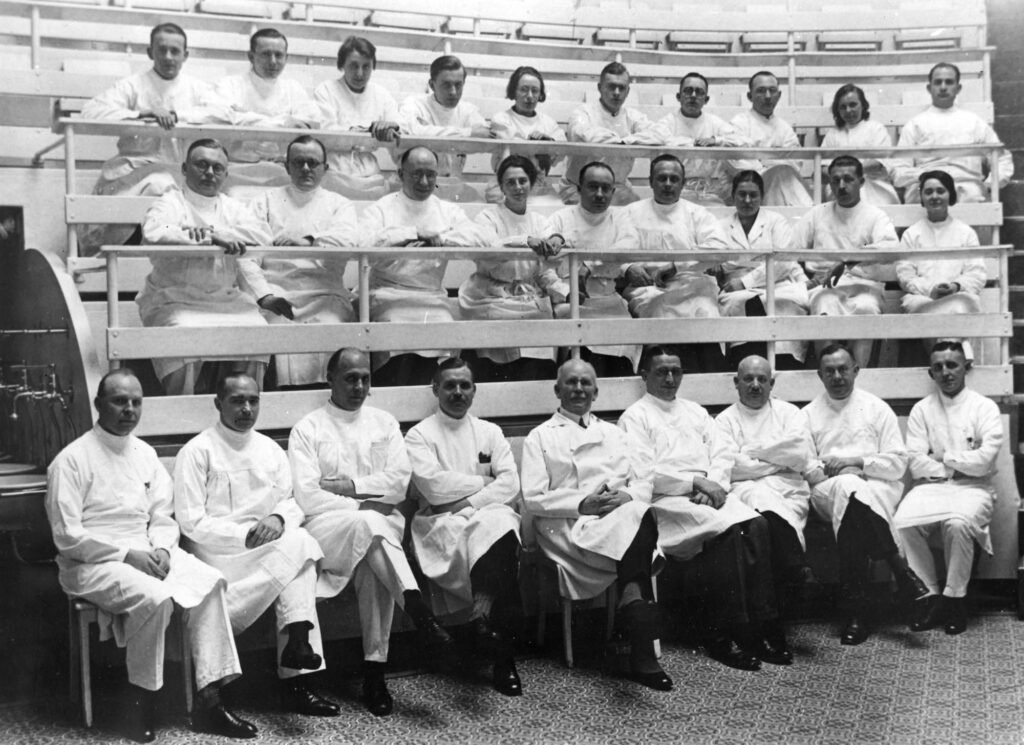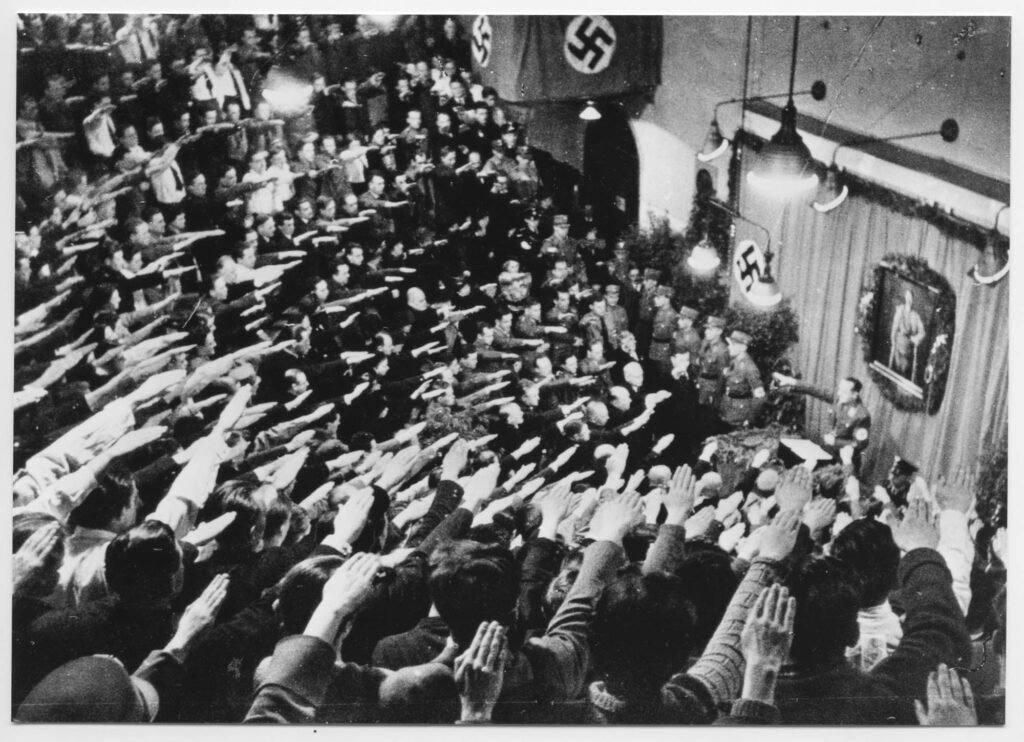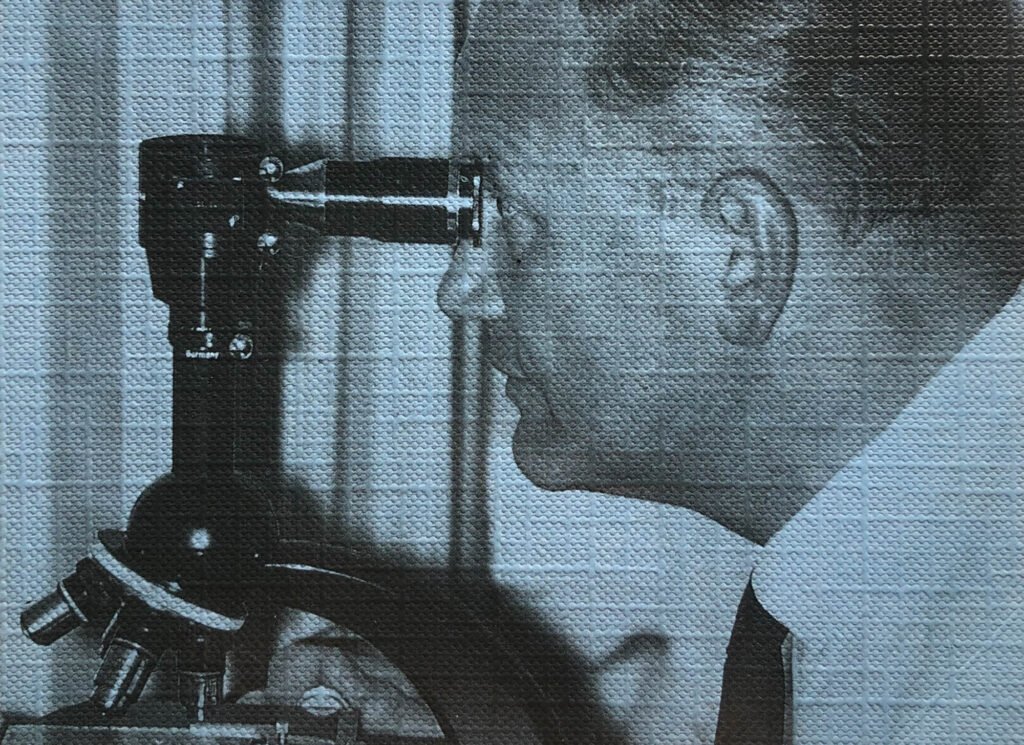Most people who contract Reiter’s syndrome, a form of reactive arthritis, experience fever, weight loss, and pain in the lower limbs. Yet only a few of them are aware that the disease they suffer from is named after German doctor Hans Conrad Reiter, who conducted experiments on Jewish people in the Buchenwald concentration camp.
Doctors’ names are frequently applied to the diseases they discover, functioning as an honouring, memorialising device. To this day numerous eponyms controversially perpetuate the memory of doctors who operated under the Nazi regime, sometimes committing ominous crimes such as using prisoners in camps as test subjects.
The scientific successes of these doctors, which led to the discovery of new diseases or to the advancement of medical science have however also provided a special immunity to these eponyms. Only in recent years it has been deemed appropriate to remove the name of the physician from the name of the pathology.
The Weight of the Word is an extensive and in-depth documentation work by photographer, Piero Martinello and historian, Piero Casentini on the eponymy cases of nine Nazi doctors and researchers. The collection of textual and visual material from libraries, archives, and present-day medical texts, as in the case of the anatomical atlas by Pernkopf, allows us to reconstruct the personal history of these doctors, their research, and, in some cases, the damnatio memoriae that followed the condemnation of their work.
The documentary material which is being turned into a forthcoming book directs the observer to a synoptic vision, whereby the doctors’ biographies, the crimes they committed, and the success they achieved are stitched together. The work of Martinello and Casentini invites us to reflect on the deontological and ethical dimension of science and on the immunity that science sometimes enjoys.
Translating The Weight of the Word into an exhibition is a risky operation, as the visual material has an attractive form that can distract us from its dark origin. This is another knot that the work incidentally addresses: how to trace visual documentary forms back to a circumstantial history that can control the fascination that the otherwise isolated document would exert on us. The exhibition thus invites us to reflect on the unification of causes and effects instead of forgetfully enjoying the form and nothing else.
Piero Martinello (Italy, 1985) is a photographer trained at Fabrica, where he worked for Colors Magazine. He also collaborated on several social projects for agencies such as the World Health Organization. His first book Radicalia was among TIME Magazine’s top thirty photobooks of 2016. Martinello’s works have been exhibited in several institutions between Europe and North America.
Piero Casentini (Italy, 1986) studied History at Cà Foscari University in Venice, where he graduated with a thesis on the 1848’s Italian States Revolutions. He is active in the historical research field and cultural divulgation. He writes and publishes essays on history, memory, literature and art, and worked on the National Atlas of Nazi and Fascist massacres.
From 23 September to 2 October 2022 the second edition of the PhMuseum Days photography festival will take place at DumBO space in Bologna, Italy. The event is curated and organized by PhMuseum, an incubator of photographic talents, with the aim of becoming one of the most interesting festivals on the European calendar while contributing to placing Bologna among the cities of reference for contemporary photography.
The chosen theme is Today is Yesterday’s Tomorrow, intended as an opportunity to reflect on the powerful moment of change we are living through. The event will be a playground for professionals and a moment of discovery for those who want to get closer to photography and the visual arts. The program includes individual exhibitions, a collective installation, portfolio reviews, screenings, performances and a space dedicated to independent publishing.






